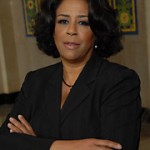by Kris Hermes, Americans for Safe Access
On December 10th, Los Angeles Superior Court Judge Anthony J. Mohr ruled in the case Americans for Safe Access v. City of Los Angeles, which involves more than 100 plaintiffs, that the city’s medical marijuana dispensary ordinance was too restrictive. Relying on the recent landmark decision in Qualified Patients Association v. City of Anaheim, Judge Mohr held that state law forbids such onerous restrictions on local distribution. However, some LA City Council Members must not have read the decision.
Judge Mohr’s 40-page ruling was a shot in the arm for advocates of safe access to medical marijuana. Though unpublished, Judge Mohr’s ruling clearly emphasized the need for local distribution and called for a functional regulatory in Los Angeles scheme to implement it.
Specifically, Judge Mohr found that:
“[T]he State of California authorized certain people to operate collectives,” and “the [Los Angeles] Ordinance denies without due process of the law the statutorily conferred right to operate a collective.”
Going out of his way to make the point, Judge Mohr warned all California cities that wholesale or de facto bans against local medical marijuana dispensaries are in violation of state law:
“[I]n discharging its powers and duties under the police power, the City must not lose sight of the fact that the People of the State of California have conferred on qualified patients the right to obtain marijuana for medical purposes. No local subdivision should be allowed to curtail that right wholesale or regulate it out of existence.”
The ruling also weighed in on the issue of “sales,” or reimbursements for the cost and expense of running a medical marijuana dispensary. Contrary to the position that “sales” are illegal under state law held by staunch medical marijuana opponents like Los Angeles District Attorney Steve Cooley who recently lost a bid for State Attorney General, Judge Mohr pointed to the 2008 Attorney General Guidelines, stating that:
“[U]nder proper conditions…a storefront dispensary can be a legitimate medical marijuana collective. The Guidelines also suggest that under proper circumstances, an exchange of money for medical marijuana is allowed.”
In granting the preliminary injunction against enforcement of the city’s ordinance, Judge Mohr also struck down the sunset clause banning dispensaries in two years unless the ordinance is reauthorized, and barred the city from disclosing to police the personal information of patients as a violation of their privacy rights.
However, instead of embracing Judge Mohr’s order, and his rejection of an overly restrictive ordinance, Los Angeles City Council members Bernard Parks and Jan Perry introduced a motion to completely ban distribution within the city limits. Completely ignoring Judge Mohr’s ruling issued five days before the ban motion was filed, Parks and Perry claimed that it was “in the best interest of the City…to ban medical marijuana dispensaries,” pointing to crime as the rationale.
Parks and Perry also apparently ignored the crime data of their own Police Chief, Charlie Beck. In a 2009 study, Chief Beck found that 71 robberies had occurred at the more than 350 banks in the city compared to 47 robberies at the more than 500 medical marijuana facilities. In response to his report, Chief Beck observed that:
“banks are more likely to get robbed than medical marijuana dispensaries,”
and the claim that dispensaries attract crime:
“doesn’t really bear out.”
Parks, Perry and the rest of the Los Angeles City Council ought to reconsider what’s in the best interest of the City and heed Judge Mohr’s order. Furthermore, the Council should work better with the patient community to craft an ordinance that will meet their needs and one that is not overly restrictive or simply a sweeping reaction to sensationalized safety concerns.
The case will now proceed to trial as long as Judge Mohr’s decision isn’t appealed by the City of Los Angeles, an action that is unwarranted but likely.















